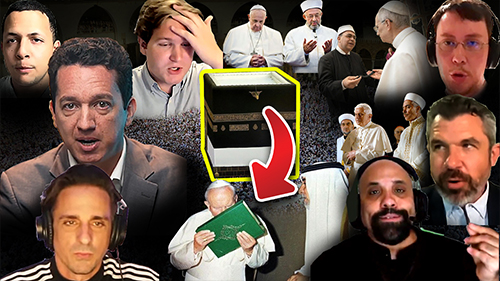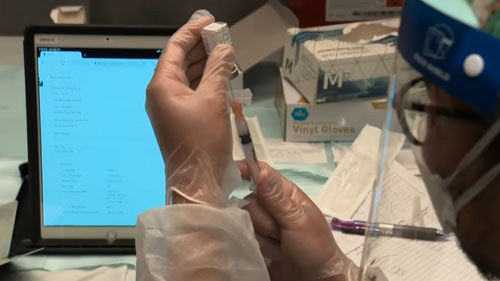| Recent Featured Videos and Articles | Eastern “Orthodoxy” Refuted | How To Avoid Sin | The Antichrist Identified! | What Fake Christians Get Wrong About Ephesians | Why So Many Can't Believe | “Magicians” Prove A Spiritual World Exists | Amazing Evidence For God | News Links |
| Vatican II “Catholic” Church Exposed | Steps To Convert | Outside The Church There Is No Salvation | E-Exchanges | The Holy Rosary | Padre Pio | Traditional Catholic Issues And Groups | Help Save Souls: Donate |  |









 " />
" /> " />
" /> " />
" /> " />
" /> " />
" />




Pope Innocent III
OBJECTION- Pope Innocent III taught that a person who baptized himself could be saved by the desire for the Sacrament of Baptism.
This proves the theory of baptism of desire.
ANSWER- It is true that Pope Innocent III apparently said that a person who baptized himself could be saved by his desire for the sacrament, but it is false to say that this proves the theory of baptism of desire. Baptism of desire is disproved by the infallible teaching of Pope St. Leo the Great, the Council of Florence and the Council of Trent on the necessity of the Sacrament of Baptism for salvation. But the first thing that should be said about this letter from Innocent III is that a letter to the Bishop of Metz does not meet the requirements for an infallible pronouncement. This is a fact hardly anyone would dispute.
To prove this point consider the following: In the letter Ex parte tua, Jan. 12, 1206, the same Innocent III teaches that original sin was remitted by the mystery of circumcision.
This is definitely wrong, since the Council of Trent defined as a dogma (Session VI, Chap. 1 on Justification) that “not even the Jews by the very letter of the law of Moses were able to be liberated or to rise” from original sin.[3]
In other words, not even the observance of Circumcision and the rest of the Mosaic Law enabled Jews to be freed from original sin (de fide), contrary to what Innocent III taught in his letter Ex parte tua. So we have Innocent III teaching blatant error in the letter Ex parte tua to Andrew, the Archbishop of Lyons. Since Ex parte tua is at least as authoritative as the other two statements allegedly from Innocent II and Innocent III, which are often quoted by baptism of desire supporters, it proves that they are likewise fallible and non-Magisterial. And this is the kind of “evidence” which baptism of desire supporters try to bring forth from the Papal Magisterium: a dubious letter alleged to be from Innocent II – with no date or addressee – and a letter from Innocent III to an archbishop, which ranks on the same level as Ex Parte Tua which contains things contrary to Catholic dogma. The evidence in favor of baptism of desire from the infallible Papal Magisterium is zero.
In fact, as mentioned already, it was during Innocent III’s time forbidden to bury the unbaptized (whether catechumens or even children of Catholic parents) in consecrated ground. And it is the infallible teaching of the same Pope at the Fourth Lateran Council which affirms the absolute necessity of water baptism for salvation.
The faithful” only includes those baptized with water, as section 6 of this document proves.
And here is another statement from the same Pope which, though not infallible, insists on the absolute necessity of rebirth in water.
Perhaps Pope Innocent III’s blunders in his fallible capacity as pope are the reason we read the following vision about him barely avoiding Hell and being allegedly condemned to suffer in Purgatory until the end of the world.
[1] Denzinger 413.
[2] Denzinger 410.
[3] Denzinger 793.
[4] Denzinger 793.
[5] Decrees of the Ecumenical Councils, Vol. 1, p. 230; Denzinger 430.
[6] Decrees of the Ecumenical Councils, Vol. 1, p. 230; Denzinger 430.
[7] Denzinger 412.
[8] Fr. Christopher Rengers, The 33 Doctors of the Church, p. 504.
Sign up for our free e-mail list to see future vaticancatholic.com videos and articles.
Recent Content
^